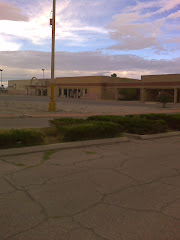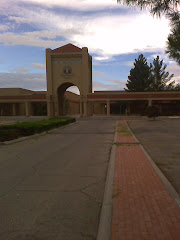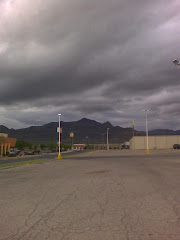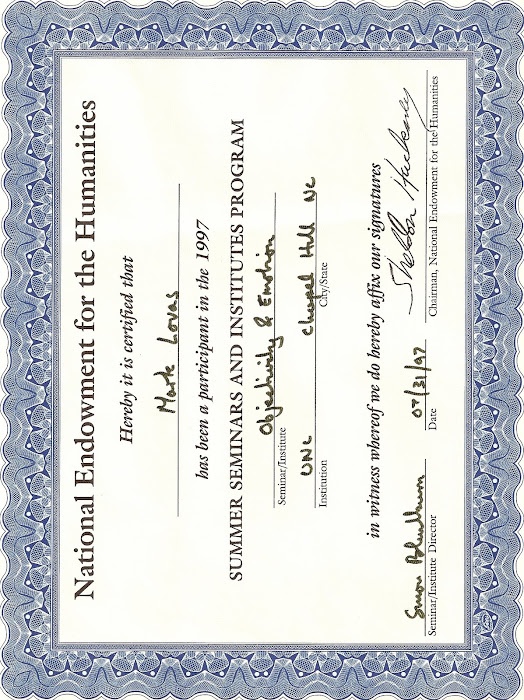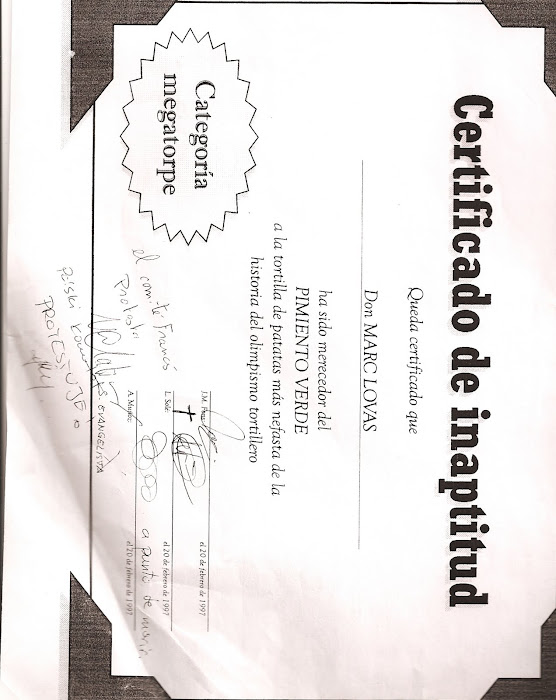what a miserable country
just saw a photo of a typical street scene in wien
how could usa citizens have any concept of public good when there are no public spaces?
what a horrible way to live
this is neither pleasant nor comfortable
Wednesday, November 25, 2009
Wednesday, November 11, 2009
Nothing in particular
EO Wright does make a brief mention of the inefficient and wasteful transportation system of the USA.
my daily experience resounds with his scholarly detached observation. I do not apologize for that property which others refer to as my emotionalism.
The memory of Karlskirche... the crowded U-bahn..... Turkish mothers with their strollers....
chance conversations in a language I don't recognize.... or even Slovak or Czech....
There is nothing in this sun drenched city to compare to that...
Or is it that I don't know Spanish?
I don't like the streets of El Paso....the mean, truck-filled streets....dogs barking at me in the suburban neighborhoods,
sometimes they are silly
like the four tiny chihuaha rat dogs that pipe their silly voices at me just before I cross the too wide street
or the more vicious sounding large dogs that bound at me and seem determined to jump over the fence which
protects me from them
insanity
whence the desire to have a small bit of turf and fill it with a shit-generating animal?
the unpleasantness of this city
crossing a street, a too-wide street, made unpleasant by the cruel sun
and the anxious knowledge that some car or enormous truck wants to turn left at the light
and I am impeding their progress
In truth I knew that unpleasantness equally in Wien as well
when I went for my daily teaching task to that horrific ungodlybuilding of the uniqa insurance firm
and it was no less unpleasant to perceive the impatient cars
though few of them were enormous trucks
and i did not experience the burning sensation caused by
a
merciless
sun
my daily experience resounds with his scholarly detached observation. I do not apologize for that property which others refer to as my emotionalism.
The memory of Karlskirche... the crowded U-bahn..... Turkish mothers with their strollers....
chance conversations in a language I don't recognize.... or even Slovak or Czech....
There is nothing in this sun drenched city to compare to that...
Or is it that I don't know Spanish?
I don't like the streets of El Paso....the mean, truck-filled streets....dogs barking at me in the suburban neighborhoods,
sometimes they are silly
like the four tiny chihuaha rat dogs that pipe their silly voices at me just before I cross the too wide street
or the more vicious sounding large dogs that bound at me and seem determined to jump over the fence which
protects me from them
insanity
whence the desire to have a small bit of turf and fill it with a shit-generating animal?
the unpleasantness of this city
crossing a street, a too-wide street, made unpleasant by the cruel sun
and the anxious knowledge that some car or enormous truck wants to turn left at the light
and I am impeding their progress
In truth I knew that unpleasantness equally in Wien as well
when I went for my daily teaching task to that horrific ungodlybuilding of the uniqa insurance firm
and it was no less unpleasant to perceive the impatient cars
though few of them were enormous trucks
and i did not experience the burning sensation caused by
a
merciless
sun
Tuesday, November 10, 2009
Current Reading
been reading the draft of Eric Olin Wright's new book about the nature of the USA
very sad reading indeed.....
makes me wish I lived in Europe....
but Wright, in what I've read thus far, doesn't talk about the sexual puritanism....
which produces a miserable sort of hypocrisy about touching in public and other matters.
But I've only read a couple of chapters so far....
I did get the idea that the conditions he describes (lack of social guarantees, markets for jobs)
do lead to the rather intense individualism of the u.s.a
I think there's a sort of hypocrisy here as well. You can hear it when people say of someone who
is relevantly similar to them: "Well, what s/he did is just wrong! No excuses. They had freedom of choice."
As if to say: I wouldn't do that bad thing. They did it; so, end of story. No question of sympathy, compassion
or understanding why they did it.
If the two people (the one lacking sympathy and the "wrong-doer") are, in effect, competing, this lack
of sympathy makes more sense....
Although I also think the insistence (oh she protests too much!) that I am not like them is, actually,
suspicious--too dangerous to think that I might do what they have done....
I put "wrong-doer" in quotes because the USA criminalizes activities which other countries treat as
social problems (drug use, prostitution)...
very sad reading indeed.....
makes me wish I lived in Europe....
but Wright, in what I've read thus far, doesn't talk about the sexual puritanism....
which produces a miserable sort of hypocrisy about touching in public and other matters.
But I've only read a couple of chapters so far....
I did get the idea that the conditions he describes (lack of social guarantees, markets for jobs)
do lead to the rather intense individualism of the u.s.a
I think there's a sort of hypocrisy here as well. You can hear it when people say of someone who
is relevantly similar to them: "Well, what s/he did is just wrong! No excuses. They had freedom of choice."
As if to say: I wouldn't do that bad thing. They did it; so, end of story. No question of sympathy, compassion
or understanding why they did it.
If the two people (the one lacking sympathy and the "wrong-doer") are, in effect, competing, this lack
of sympathy makes more sense....
Although I also think the insistence (oh she protests too much!) that I am not like them is, actually,
suspicious--too dangerous to think that I might do what they have done....
I put "wrong-doer" in quotes because the USA criminalizes activities which other countries treat as
social problems (drug use, prostitution)...
I recently sent the below letter to a reporter at the El Paso Times in response to something he wrote:
Public transport is not and should not be treated as a mere curiosity.
The fact of global warming with the inevitable premature deaths, migrations and diseases should be at the forefront of your journalistic consciousness.
In this respect El Paso is a community which seems to be in denial. And the management of Sun Metro fail to understand the role they could play in achieving a more sustainable life style. Unless buses become truly convenient (as they currently are not) people will not voluntarily choose to forego using their cars.
I understand that you think your article says that bus riders are individuals—each with his or her own story to tell. But that is not the whole story about what you have written.
You both trivialize and exoticize the activity of riding the bus and the people who ride the bus.
Riding the bus is not fun. Even less fun is waiting for the bus. You should try taking the bus from Northeast El Paso to North Mesa—using lines 44,42, and 15. And you should add up the time you spend waiting for the next bus. I suspect your enthusiasm for overheard conversations would diminish.
The bus shelters—so called—rarely provide any shelter from the elements. There are truly scenic bus shelters on North Mesa which look good from a distance, but provide little shelter from wind, sun, or rain. Most bus shelters have as much in common with a shelter as a cardboard cut out tree on stage does with a real tree. If I took a cardboard tree to the bus stop, I’d get as much protection from the elements as I would with the typical bus shelter.
It was insightful that you noticed that Mexicans seem to accept the fate that others don’t so easily accept. This insight, however, could be developed. You stop short of recognizing the obscene injustice and inequality which is characteristic of our United States --as well as global political and economic structures.
You have, quite simply, missed the bigger picture.
I am sure it was not your intention, but nevertheless your article manages to lend support to the unspoken ideology which says that real people have cars.
Your article reinforces the image of the bus rider as an outsider, as an “other”, as not one of us, and consequently, less important—an object of curiosity but not an object of genuine respect—the kind of creature who deserves less time at intersections because real people have cars.
Perhaps you say that since most people have cars, it is only natural that they have more influence.
But there is nothing natural about it. Why is it that some cannot afford cars? Not because they are stupid and lazy, but because our political and economic system is cruel and insane. (That you or I are relatively comfortable is no counter-argument.)
If there were no global warming, I would condemn the use of the personal auto on cultural grounds. Cars are noisy and the foster a me-first mentality. Cars and trucks make El Paso an extremely ugly city. North Mesa, filled with glass and steel shining in the sunshine is one of the most inhuman (and inhumane) places on the face of the earth. Cars and trucks are noisy—whether or not they have loud stereos.
The City of El Paso adds insult to injury with poorly timed pedestrian crosswalks—which become obscenely unsympathetic when they count down (with flashing lights or some perverse artificial voice) the time remaining before the impatiently enormous trucks (brutal as no mere animal could be) race forward.
You have missed the bigger picture. Public transport does provide a public space that is less competitive than the space of the personal automobile. That’s why there are conversations for you to overhear.
And you are right to notice that this is an unusual phenomenon in El Paso, Texas. Unfortunately you have under-estimated the power and importance of your own insight.
Public transport is not and should not be treated as a mere curiosity.
The fact of global warming with the inevitable premature deaths, migrations and diseases should be at the forefront of your journalistic consciousness.
In this respect El Paso is a community which seems to be in denial. And the management of Sun Metro fail to understand the role they could play in achieving a more sustainable life style. Unless buses become truly convenient (as they currently are not) people will not voluntarily choose to forego using their cars.
I understand that you think your article says that bus riders are individuals—each with his or her own story to tell. But that is not the whole story about what you have written.
You both trivialize and exoticize the activity of riding the bus and the people who ride the bus.
Riding the bus is not fun. Even less fun is waiting for the bus. You should try taking the bus from Northeast El Paso to North Mesa—using lines 44,42, and 15. And you should add up the time you spend waiting for the next bus. I suspect your enthusiasm for overheard conversations would diminish.
The bus shelters—so called—rarely provide any shelter from the elements. There are truly scenic bus shelters on North Mesa which look good from a distance, but provide little shelter from wind, sun, or rain. Most bus shelters have as much in common with a shelter as a cardboard cut out tree on stage does with a real tree. If I took a cardboard tree to the bus stop, I’d get as much protection from the elements as I would with the typical bus shelter.
It was insightful that you noticed that Mexicans seem to accept the fate that others don’t so easily accept. This insight, however, could be developed. You stop short of recognizing the obscene injustice and inequality which is characteristic of our United States --as well as global political and economic structures.
You have, quite simply, missed the bigger picture.
I am sure it was not your intention, but nevertheless your article manages to lend support to the unspoken ideology which says that real people have cars.
Your article reinforces the image of the bus rider as an outsider, as an “other”, as not one of us, and consequently, less important—an object of curiosity but not an object of genuine respect—the kind of creature who deserves less time at intersections because real people have cars.
Perhaps you say that since most people have cars, it is only natural that they have more influence.
But there is nothing natural about it. Why is it that some cannot afford cars? Not because they are stupid and lazy, but because our political and economic system is cruel and insane. (That you or I are relatively comfortable is no counter-argument.)
If there were no global warming, I would condemn the use of the personal auto on cultural grounds. Cars are noisy and the foster a me-first mentality. Cars and trucks make El Paso an extremely ugly city. North Mesa, filled with glass and steel shining in the sunshine is one of the most inhuman (and inhumane) places on the face of the earth. Cars and trucks are noisy—whether or not they have loud stereos.
The City of El Paso adds insult to injury with poorly timed pedestrian crosswalks—which become obscenely unsympathetic when they count down (with flashing lights or some perverse artificial voice) the time remaining before the impatiently enormous trucks (brutal as no mere animal could be) race forward.
You have missed the bigger picture. Public transport does provide a public space that is less competitive than the space of the personal automobile. That’s why there are conversations for you to overhear.
And you are right to notice that this is an unusual phenomenon in El Paso, Texas. Unfortunately you have under-estimated the power and importance of your own insight.
Sunday, November 8, 2009
Ugliness
It is difficult for me to describe the unpleasantness which is El Paso.
I would like to take a walk, to get out of the house, but where would i go?
I might walk along the sidewalks, sidewalks in front of small square suburban boxes. Most homes surrounded
by a fence or wall. many have three or four or five trucks--usually trucks, big trucks--parked in front.
dogs bark at me.
There are no trash cans. That is no public trash cans--indicating that walking is not desired or encouraged.
If I walk from my home to the Northgate bus transfer center, there are no public garbage cans along the way--a thirty minute walk.
I look at these houses when I walk to the bus stop, and I think: What is the point? To have your own little house with
your own little piece of grass?!
Sterile and anti-social. It's mine, mine, mine, all mine. No wonder these people continue their climate criminal
life style...
driving at the least whim...
driving large trucks here and there...
I prefer Vienna's crowded public transport--more frequent than El Paso's buses--to walking in the
blazing sun along the sidewalks as enormous trucks zoom by me in the obscenely large streets...
not civilization this
always a barren wilderness in the land of the free...
I would like to take a walk, to get out of the house, but where would i go?
I might walk along the sidewalks, sidewalks in front of small square suburban boxes. Most homes surrounded
by a fence or wall. many have three or four or five trucks--usually trucks, big trucks--parked in front.
dogs bark at me.
There are no trash cans. That is no public trash cans--indicating that walking is not desired or encouraged.
If I walk from my home to the Northgate bus transfer center, there are no public garbage cans along the way--a thirty minute walk.
I look at these houses when I walk to the bus stop, and I think: What is the point? To have your own little house with
your own little piece of grass?!
Sterile and anti-social. It's mine, mine, mine, all mine. No wonder these people continue their climate criminal
life style...
driving at the least whim...
driving large trucks here and there...
I prefer Vienna's crowded public transport--more frequent than El Paso's buses--to walking in the
blazing sun along the sidewalks as enormous trucks zoom by me in the obscenely large streets...
not civilization this
always a barren wilderness in the land of the free...
Friday, November 6, 2009
USA not advanced
I am about to walk to the nearest pharmacy to pick up medicine for my father.
IT is not easy for him to go out.
There's a bus every hour. I am too impatient to wait for it.
Even if I caught it immediately, I'd still have to wait for another bus to return.
Since I am impatient I will now waste 90 minutes or so walking.
This wouldn't happen in Bratislava or Wien.
It would be unthinkable.
Don't tell me the US is an "advanced" country. This is primitive.
IT is not easy for him to go out.
There's a bus every hour. I am too impatient to wait for it.
Even if I caught it immediately, I'd still have to wait for another bus to return.
Since I am impatient I will now waste 90 minutes or so walking.
This wouldn't happen in Bratislava or Wien.
It would be unthinkable.
Don't tell me the US is an "advanced" country. This is primitive.
Subscribe to:
Posts (Atom)
